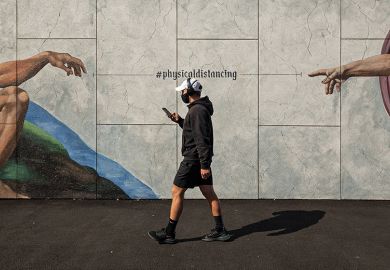The question: “Do lectures have a future?” keeps popping up − perhaps even more so in the current Covid-specific mode of online delivery, since lecturing does not mix well with online provision. And it deserves a considered answer.
Lectures that are lengthy monologues by the person delivering are not useful for (most) learning. If we want students to remember important facts beyond their assessment and to apply knowledge effectively after they graduate, long lectures simply don’t work. If we want students to be inspired by a charismatic researcher, the traditional lecture can be wonderful and memorable − but the majority of our teaching is not aimed at being merely inspiring. The evidence against lecturing as a useful learning tool is overwhelming.
Perhaps that question is not the right one to ask, though, and we should instead be asking: “What are we trying to achieve for our students?” At the University of Leeds, we want our students to learn enough about their discipline to become experts in their field, but even more importantly, we want them to learn the value of group work; of collaboration instead of competition; of trial and error and of understanding that making mistakes is part of innovation; of working with colleagues and teachers from different cultural backgrounds and different disciplines; and of understanding what the world needs. In other words: we want them to learn the way they will in real life and real jobs.
Universities should partner with students instead of treating them like passive recipients of our superior knowledge. Young people are increasingly vocal about wanting to contribute to changing the world. We could ask them to inspire us to do things differently and co-create their learning with us. They may surprise us with their insights and knowledge. In an interactive curriculum, students’ varied backgrounds and lived experiences can be an asset. They can learn from each other’s different perspectives and understand how these are needed to solve complex, real-world problems. Decolonising the curriculum will be much more effective with a high level of student participation in the classroom.
It is hard to see how the hour-long “monologue” lecture can be the backbone of that type of curriculum. The sad fact is that most factual knowledge is only retained for a few days after an assessment has been successfully completed. Lecturing’ can be OK if delivered in smaller chunks, before, during, or after the classroom session. But to truly learn, students have to subsequently apply and use the knowledge while working together with each other and the teacher. Online learning makes the possibilities of interactive (group) work and creative teaching almost endless. And once Covid is over, being together on campus for face-to-face activity can seamlessly again become part of the suite of interactive teaching and learning modes.
THE Campus: Top five strategies for integrating active learning into virtual classes
One crucial element of more interactive teaching done well is not often discussed: it is so much more fun. An hour-long lecture (not the type mentioned above that is entertaining and inspiring), with tweaked PowerPoint slides from last year, is rarely fulfilling: not for the students, and neither for the lecturer. Working closely with students, whether that is in a high-quality, digitally enabled virtual classroom or in a real one, can be a rewarding, much more “human” experience for both parties.
That should be one of the most important reasons to embrace the concept of interactive, student-centred pedagogy. It is quite clear that teachers, once they have overcome the initial hesitation and have learned how to teach differently, are much more fulfilled in these classroom settings. I cannot (yet) prove it, but I would dare to bet that if we can show our students that learning can be enjoyable, they are much more likely to be effective and happy in their future jobs.
I sometimes think about teaching along the same lines as parenting, although, clearly, when students join us at university, they are already independent adults. But as in parenting, our university education should be about preparing them well for life. The more we understand them and their needs, and the better our relationship with them, the more they can safely practise while still in our care what they will one day need to apply independently in real life.
THE Campus: How to design an online course centred around interactive learning
To continue the parenting comparison, it can perhaps also help to go back to our own upbringing. I remember very clearly that when I was young, parental lectures were rarely inspiring, were not what I really needed and hardly ever changed my behaviour for long. I suspect the majority of us did not particularly enjoy them. We can use those lessons, as well as the research evidence, to give our students the university experience they need and deserve.
Simone Buitendijk is vice-chancellor of the University of Leeds.
Register to continue
Why register?
- Registration is free and only takes a moment
- Once registered, you can read 3 articles a month
- Sign up for our newsletter
Subscribe
Or subscribe for unlimited access to:
- Unlimited access to news, views, insights & reviews
- Digital editions
- Digital access to THE’s university and college rankings analysis
Already registered or a current subscriber?




